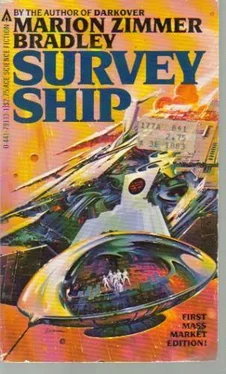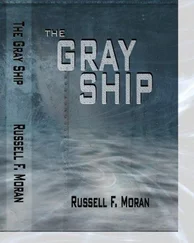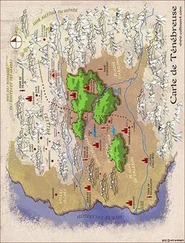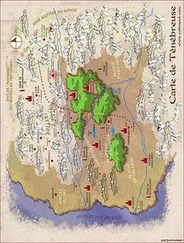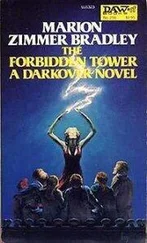“It’s not that,” Moira said, sniffing. “But — they were so beautiful, and — and look at them—”
“Let her alone, Teague,” Fontana said. “It’s the strain. It’s all right to cry, Moira, you can cry if you want to.”
But Ching, following Moira’s glance, felt tears in her own eyes. She knew precisely how Moira felt. She may not think I’m capable of understanding, but I do. You can trust machinery, it’s the one thing you can always trust, it’s supposed to be perfect and it is, it’s the one thing you can always be sure of being just exactly what it is supposed to be. And this — it’s like rape, a violation, something intruding into an area you thought safe, personal, protected.
She put her arm around Moira’s waist; dimly she remembered rebuffing some such gesture from Moira, some time ago — but Moira did not pull away from her, and Fontana wondered if she had ever heard Ching’s brisk voice so gentle.
“The thing to do, Moira, is to get them in, if you can do it without further damage, and try to get another sail out; we could veer off course if the sails aren’t properly trimmed for the drives. But the extent of the damage will be recorded in the computer, and any deviation from the set course; I’m going to check that, right now. Do you want some help getting the sails in, or would you rather do it yourself?”
Moira’s in shock, Fontana thought; and Ching’s doing what I ought to be doing. Who would ever have thought Ching could function as a psychologist?
Moira said, “I think I — I’d rather do it myself.” She knew it was absurd; but somehow she had the feeling that her own gentle hands on the sails would damage them less than another’s. She was still capable of being surprised at her own reaction, knowing it to be completely irrational. It’s as if Ching really understood. But how could she?
Ching patted her shoulder, said, “If you need any help, Moira, I’m here.”
Ching watched Moira for a few moments before going to her own console, but Moira’s thin freckled fingers seemed perfectly steady on the control sails and she could see, out the great window, the movement of the torn sails as they began to reel inward. She said, “Shall I check any deviation from course, Ravi?”
He nodded, frowning, taut. He said, “Deviation or no deviation, we are not on the course that I set. Peake, did you change anything when you were on duty?”
Peake shook his head. “No, not at all.”
“That’s foolish,” Ching said, frowning at her console,
“if it’s the course you fed into the Navigation controls and then into the computer, it’s the course we’re on. There could have been some small deviation from course when we were struck — I’m going to check that right now—”
“But if we were struck hard enough to knock us that far off course, there would be a great deal more damage,” said Ravi, and his voice was stubborn,
Ching frowned at the smooth, luminous figures that came up on the readout. “Did you alter the course at all after Peake formally laid it in? When you do, you ought to enter it formally into the log, and let us know. Because there is a deviation here, more than the sail damage could possibly account for, and I don’t see any course changes recorded.”
Ravi shook his head vehemently. “1 didn’t,” he said. “When I first took over from Peake I saw a small deviation from the course he had set, and I corrected for that deviation, so that we’re back on the original course, or should have been. But according to this—” he waved an unsteady hand at the readouts, “we’re not anywhere near where we ought to be. We’re some hundreds of thousands of kilometers closer to the plane of the ecliptic than we ought to be, though I wouldn’t have thought we were close enough to hit the fringes of the asteroid belt.”
Ching touched her console for a position reading, and stared, disbelieving; painstakingly went through the sequence again.
“That’s not where we are,” she said positively.
“It certainly isn’t where we’re supposed to be,” Ravi agreed. “Even by dead reckoning I can make it closer than that, if we’re still aiming at the T-5 cluster as we agreed. Jupiter isn’t where it ought to be, compared to our position. Just look.”
He pointed. They could all see the great planet, but only Teague, regarding it with an astronomer’s interest, paid any attention. Ravi’s fingers raced on his own console, and at last he said formally, “Please read out your figures, Ching, because that’s not at all what I make it.”
Ching read out her answer from the console, and at Ravi’s frown she touched buttons to re-set and re-calculate position and course. This time they could all see the differences.
“But that’s not what I got the first time,” Peake said, “and that’s what I put into the course calculator. Why is it different?”
“Now wait just a minute,” Ching said, “if that’s what you put into the calculator, that’s what you got out of it. A computer gives only one answer to the same question. That’s why they have them. The whole point of a mathematical calculator — and that’s what you’re doing with the computer right now — is to eliminate human errors in arithmetic. It’s not like the story they told us in kindergarten, about the little boy who was asked if he had checked his homework—”
“Sure. J checked it three times. Here are the three answers,” Ravi quoted, with the contempt of the person to whom mathematics is a natural language, making more sense than any other language; who could no more add a set of figures wrongly, or use the wrong equation, than the natural grammarian could split an infinitive. “But just the same, that’s what I make it, and that’s what the computer makes it, and there isn’t any congruence between them. Peake got something else—”
“And I tell you again,” Ching said, really angry now, “that computers don’t make mistakes. Only the people programming them make mistakes. And in this case I didn’t make any mistakes, because you saw me enter the figures exactly as you gave them to me.”
“Ching, there’s no need to get angry with me,” Ravi said, “I’m not attacking your competence, or your personal integrity, or anything of that sort. Computers may not make mistakes, but they do have mechanical failures, don’t they? And programmers do make mistakes, and you didn’t program this one entirely by yourself, did you?”
She shook her head. “Most of the information in the library was put in storage at Lunar Dome,” she said, and clenched her fists, fighting a surge of anger and fear. Somewhere outside herself she knew that Ravi was not attacking her, that it was irrational to feel so threatened. Yet she did feel that it was her own integrity that had been questioned, not that of the computer.
I can’t trust my own body. I can’t trust the computer. Is there anything left that I can trust?
Defiantly, she pressed the console again for re-set and re-calculate. This time they could all see it; a third set of figures like neither Ravi’s nor her own, flower in liquid-crystal numerics across the console. Fighting panic, Ching erased the figures and this time, painstakingly, she entered the relevant figures for the known position of the T-5 cluster, the position of Colony Six, and the elapsed time since departing from the Space Station. Her fingers pressed hard against her mouth as she watched the fourth set of figures flowing across the readout screen.
“What does it mean?” Fontana asked. “Does it mean we’re on the wrong course? Or did whatever hit us damage the computer?”
“No,” Ching said, and her voice was shaking too, “there’s no damage to the computer module; I’m as sure as that as — as I can be of anything. But there’s something wrong with it. I’m not sure yet just what it is. What I am sure of is that it’s giving us wrong answers. Lots of wrong answers. Everyone here is getting different information out of it.”
Читать дальше
